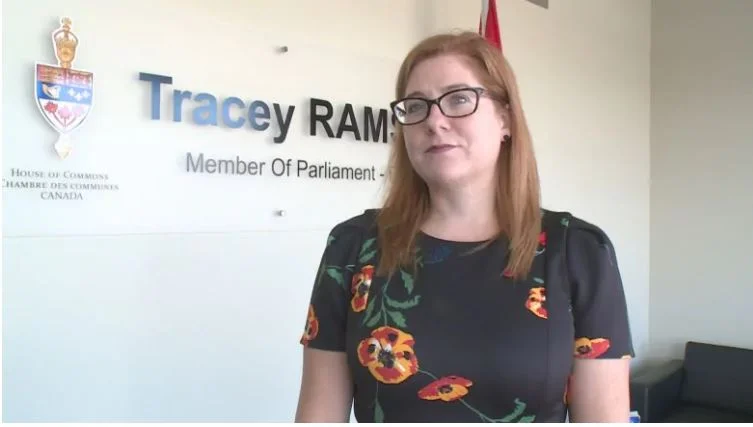It's easy to feel hopeless about climate change, to believe most solutions are out of your hands. But you can help fix one of the biggest environmental issues of our time, since it's probably growing right in your own yard: lawn grass. Most Canadian yards are a sea of non-native, inedible turf grass. Not evolved for our climate, it requires intensive maintenance, watering and fertilizer inputs, and provides virtually no value to native species. Yet this "eco-desert" is the largest irrigated crop in North America.
Kootenay Connect to receive extended funding for conservation programs
“This is a critical time for conservation work locally, and also globally. Kootenay Connect is moving our region toward doing our part to protect 30 per cent of Canada’s land and water by 2030, the recently agreed upon global conservation goal to minimize our planet’s ongoing biodiversity loss,” said Dr. Michael Proctor, Kootenay Connect Science Advisor. “We look forward to a network of healthy interconnected ecosystems that support a rich array of wildlife and important ecosystem services.”
Conservationists optimistic over David Eby's commitments to protect B.C.'s biodiversity
This week, Eby named his first cabinet as premier, with former energy and mines minister Bruce Ralston taking on forestry and Nathan Cullen replacing Josie Osborne as the minister for water, land and resource stewardship. The new ministry was put in place in February. The tone of the letters appears to usher in the type of science-based, holistic approach to conservation and biodiversity in the province that people like Wu have been asking for from the B.C. government. "We have seen the impacts of short-term thinking on the British Columbia land base — exhausted forests, poisoned water, and contaminated sites," wrote Eby is his mandate letter to Cullen.
What is blue carbon and why is it vital for mitigating Canada's carbon emissions?
Marlow Pellatt spent time on Vancouver Island, taking samples of soil from deep underground and wading through water to understand the biodiversity in the area. To an onlooker, it may seem like he’s playing in mud, but he’s actually researching how important coastal ecosystems are in Canada’s fight against climate change. Pellatt, a coastal ecologist with Parks Canada, led a team that was part of an international effort to study and preserve coastal systems this year. The joint initiative involves Canada, the U.S. and Mexico to study "blue carbon" -- the carbon stored in marine ecosystems.
Why Canada’s inaction on the oil sands toxic tailings might cost us more than our biodiversity
Canada cultivates a misleadingly good reputation abroad. I would know; I moved here because of it. However, this advantageous position is increasingly under threat as Canada keeps putting industry interest over environmental stewardship. September 4th marked the second anniversary of when the international Commission for Environmental Cooperation’s (CEC) Factual Record documented overwhelming evidence that Canada’s oil sands tailings “ponds” are leaking toxic pollutants into groundwater and tributaries of the Athabasca River.
Canada's largest P&C companies join forces for conservation investment initiative
A group of fifteen insurance companies in the P&C space have banded together with environmental non-profit Ducks Unlimited Canada to launch The Nature Force – a climate resilience initiative aimed at focusing insurers’ investments into natural infrastructure solutions to mitigate flood risk. According to a joint statement by members of The Nature Force, nature-based solutions such as the development of wetland systems can lead to positive outcomes including increased climate resilience, biodiversity and water quality.
Why Indigenous Guardians are key to Canada's climate future
In a section focused on biodiversity and the climate crisis, the 2021 federal budget shared in April contained a clear line: “Support Indigenous Guardians.” It was an explicit reference to the Guardians programs caring for lands across the country. The Indigenous Leadership Initiative (ILI), which bolsters Indigenous nationhood and culture via land stewardship and care, helps support the growing Guardians movement.
Yukon pushed to develop protections for irreplaceable wetlands threatened by mining
An independent panel is urging the Yukon government to develop a wetlands policy to protect unique streams, bogs, fens and peatland from mining because there are no known ways to fully restore these sensitive ecosystems once disturbed. Wetlands filter water, provide habitat to species and sequester carbon but are quickly being lost to development worldwide — an issue drawing attention on World Wetlands Day Feb. 2.
MP calls for national strategy to protect Canada's freshwater
NDP MP Tracey Ramsey grew up on the water's edge in Essex County — and her love for the water has her pushing for a national strategy to protect freshwater across the country. According to Ramsey, the freshwater policies that currently exist haven't been updated since 1987 — too long, in her opinion.










